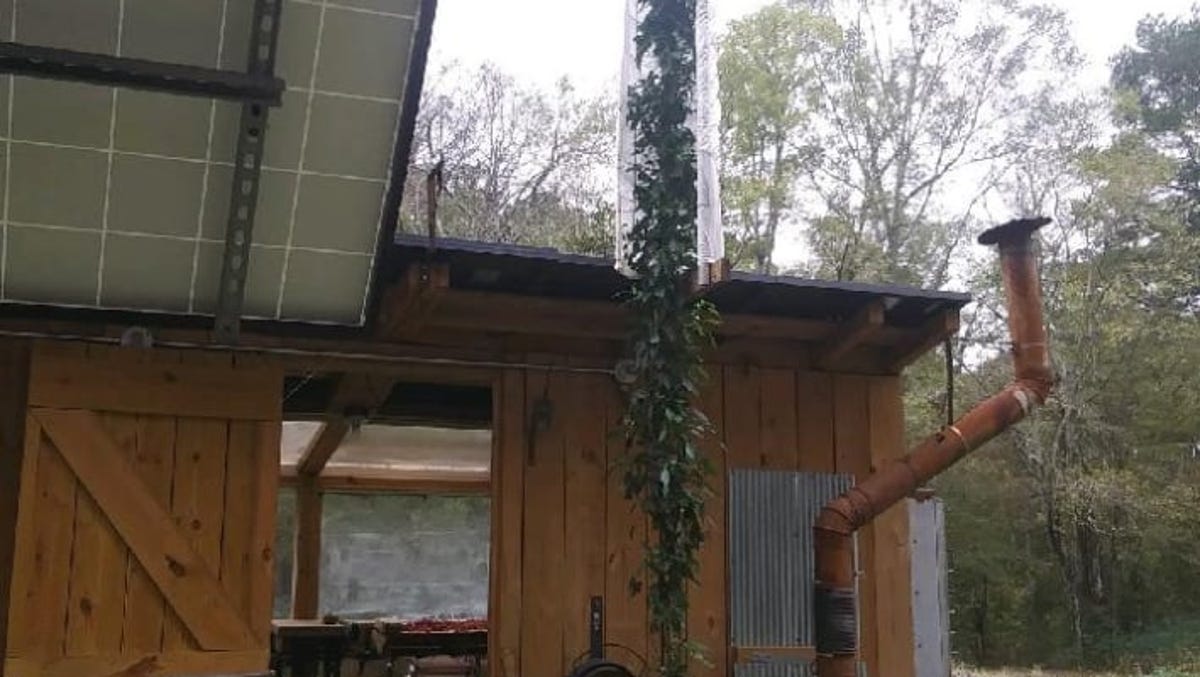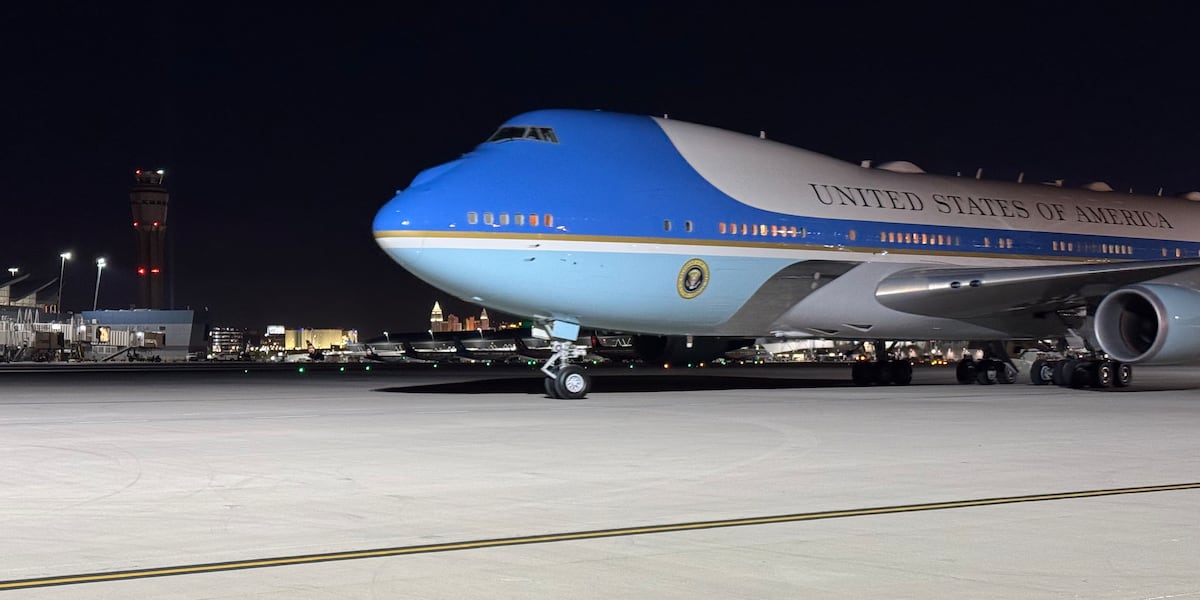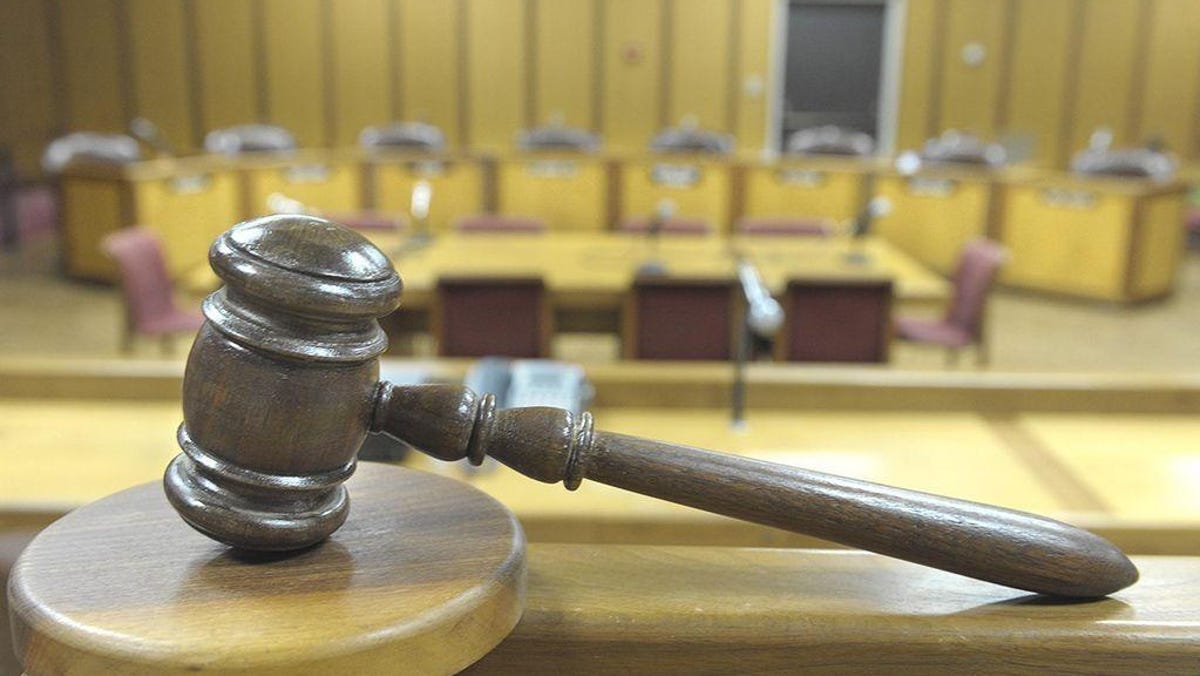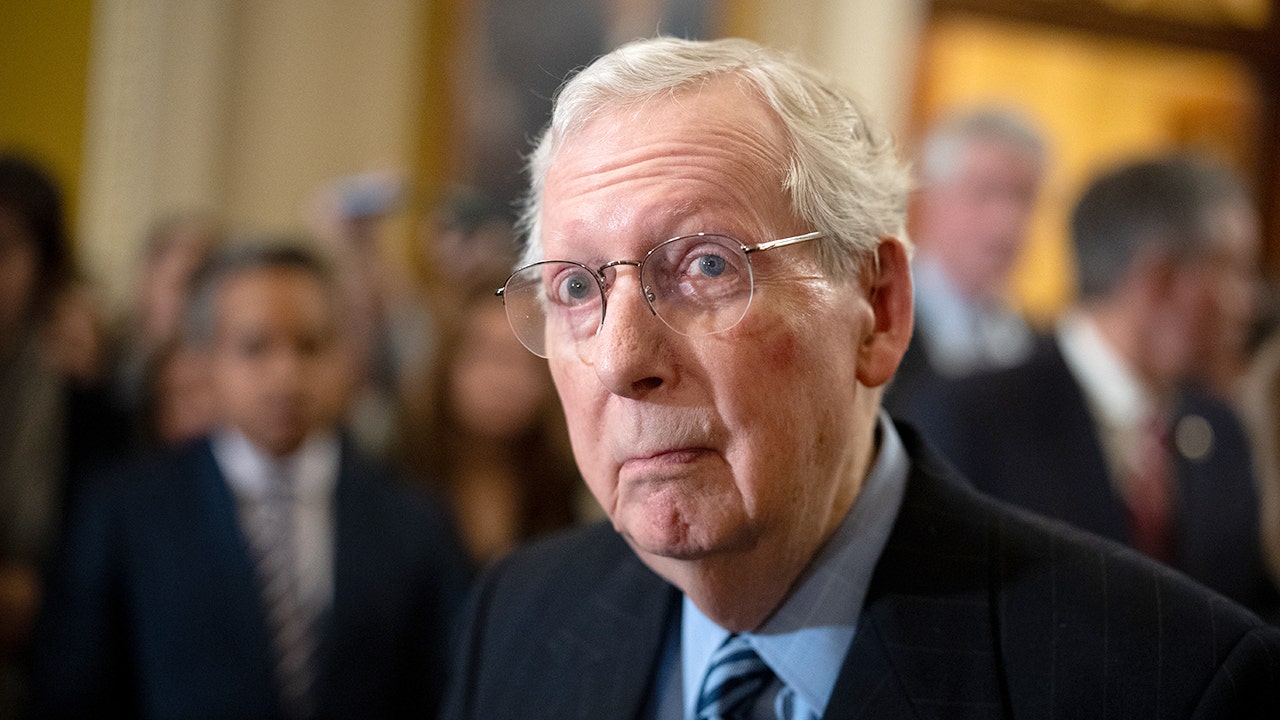Alaska
Small aircraft crashes in ravine at Alaska’s Denali National Park; pilot, passenger presumed dead
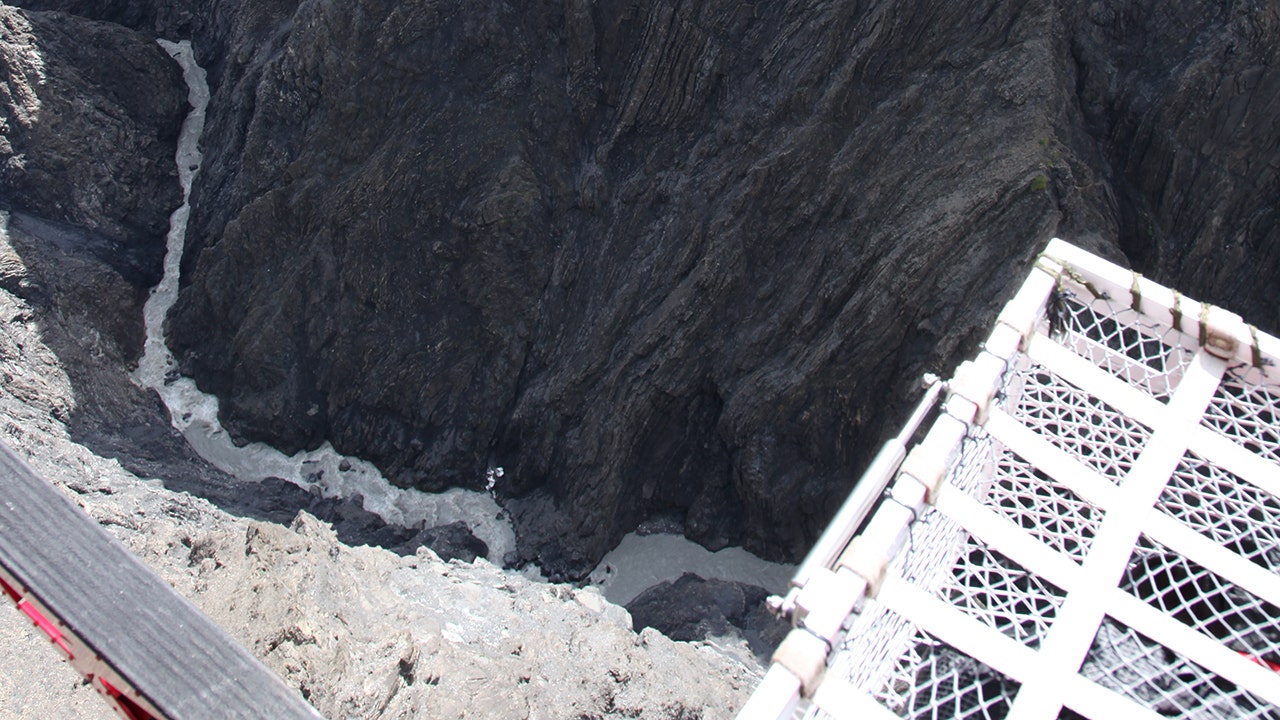
A pilot and passenger are presumed dead after a small aircraft crashed in a ravine at Denali National Park and Preserve in Alaska, officials said Saturday.
Wreckage of the PA-18 aircraft was located Thursday morning in a narrow ravine north of the West Fork of the Yentna River after it was reported overdue a day earlier in the southwest preserve, the National Park Service said in a news release.
“The search crew was unable to land at the accident site due to the steep terrain, but they observed that survivability of the crash was unlikely,” the agency said.
As park rangers assessed the crash site on Thursday, Alaska State Troopers were alerted of a hunter stranded at a remote airstrip outside the preserve’s southern border.
INVESTIGATORS SAY MISCOMMUNICATION BETWEEN PILOTS CAUSED UNITED AIRLINES JET TO DIVE TOWARD OCEAN’S SURFACE
A PA-18 aircraft crashed in a narrow ravine north of the West Fork of the Yentna River at Denali National Park and Preserve. The pilot and a passenger are presumed dead. (National Park Service)
Troopers reached the stranded hunter and learned that his pilot never returned for him Wednesday after flying his hunting partner to a Dillinger River airstrip in the western part of the preserve.
Evidence shows that the aircraft crashed before ever reaching the Dillinger airstrip, according to officials. Both men are presumed to have died in the crash.
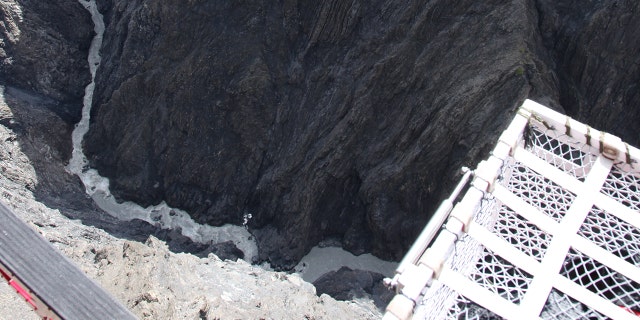
Multiple hazards have prevented the recovery of the two men’s bodies from the wreckage in the ravine. (National Park Service)
Officials identified the pilot as 45-year-old Jason Tucker, of Wasilla, Alaska, and the passenger as 44-year-old Nicolas Blace, of Chugiak, Alaska. The identity of the other hunter was not publicly released.
“Our thoughts are with the families and loved ones of those involved as we work through this response,” said Brooke Merrell, the superintendent of Denali National Park and Preserve.
NYC TEEN JUMPS OFF WATERFALL, DROWNS FOLLOWING SPATE OF RESCUES AT POPULAR SWIMMING HOLE
While the men’s next of kin have been notified, hazardous terrain and poor weather have prevented the recovery of the men’s bodies.
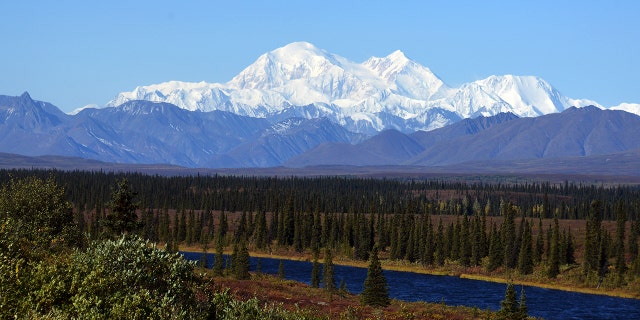
A hunter stranded at a remote airstrip at Denali National Park told Alaska State Troopers that his pilot had failed to pick him up after dropping his hunting partner off at another airstrip. (Lance King/Getty Images)
“Hazards under consideration include the 460-foot length of the short-haul line, inadequate helicopter rotor clearance due to the narrow width of the ravine, loose rock lining both walls of the ravine, and the lack of shoreline for miles above and below the rapidly flowing creek at the base of the ravine,” the agency said.
Recovery efforts, if determined possible, would involve a complex and potentially high-risk ground operation, NPS said.
CLICK TO GET THE FOX NEWS APP
A National Transportation Safety Board investigator arrived Friday and flew a drone into the ravine to assess the wreckage. It remains unclear what caused the aircraft to crash.

Alaska
Alaska House plans fast action on bill that would boost school funding and tie it to inflation

The Alaska Legislature is getting to work on a bill that would lay out a three-year plan for boosting public education spending. Rep. Rebecca Himschoot, I-Sitka, introduced the bill Friday, which would boost the base student allocation, the largest component of the state’s public school funding formula, and provide annual inflation adjustments.
In total, Himschoot said, per-student state funding would increase by:
- $1,289 next school year, a 22% increase over this year
- $691 for the 2026-27 school year
- $570 for the 2027-28 school year
Himschoot, a former teacher who co-chairs the House Education Committee, said the bill is an effort to catch up after years of inflation outpacing public school funding. Adjusting for inflation, total public school funding — including federal, state and local contributions — peaked in the 2010-11 school year, according to legislative budget analysts who briefed the committee on Friday.
Prices have risen by nearly 40% since 2010, while base education funding has risen by roughly 7% over the same period, according to documents Himschoot filed alongside the bill.
“There’s a huge gap there,” she said. “I think that all of us have noticed and have heard from families, from school districts, that that gap is there, and it’s causing huge, huge problems and taking opportunity away from our students, so this bill looks to correct that.”
Leaders of both the House and Senate have said increasing the base student allocation is a key priority.
Education funding reached record levels last year after lawmakers passed a $175 million one-time funding increase for public schools, but the one-year bump was not included in Gov. Mike Dunleavy’s budget for the next fiscal year. That means lawmakers will have to budget at least that much to keep school funding at current levels.
Himschoot’s bill is just two pages and addresses only the base student allocation. That’s a contrast with last year’s approach, when lawmakers pursued an omnibus funding bill that was ultimately vetoed by Dunleavy. The Legislature failed by one vote to override his veto.
This year, Dunleavy says he plans to introduce a $200 million education bill pairing a funding increase with reforms. Rep. Mia Costello, R-Anchorage and the House majority leader, said funding was only one piece of the puzzle.
“Our focus should be on preparing Alaska’s students to succeed,” she said by text message. “While the funding discussion is important, equally important are enacting new policies that can improve outcomes for our students and families.”
Republican lawmakers plan to discuss the funding issue at a retreat over the weekend, she said.
Sen. Löki Tobin, D-Anchorage and chair of the Senate Education Committee, said she plans to introduce a similar bill in the upper chamber. She said she thinks it’s important to tackle the funding question before moving on to other education policy issues.
“All of those things I anticipate we will tackle in the next two years. However, you can’t rearrange the deck chairs on the Titanic as it goes down,” she said by phone from Anchorage. “You have to get the ship stabilized and moving in the right direction.”
Majority lawmakers say they hope to move the bill through the House and Senate quickly, since school districts typically have to submit their budgets in early spring.
Rep. Andi Story, D-Juneau, a former school board member who also co-chairs the House Education Committee, said the three-year phase-in and inflation adjustment are meant to make budgeting more predictable — and stem the tide of outmigration.
“This is an effort to keep our residents here (whose) number one thing is, how are you going to educate my kids?” she said.
Though it could ease budgeting for school districts, Rep. Will Stapp, R-Fairbanks, said tying education funding to inflation might make the state’s budget less predictable.
“Inflation is tricky because we, at a state level, don’t control monetary policy,” he said. “That’s typically how a liability gets away from you in a budget process, to tie it to something you don’t control.”
The House Education Committee plans to hear Himschoot’s bill, House Bill 69, at least three times next week. They’ll take public testimony at two hearings scheduled for Wednesday.
Alaska
Indigenous Alaskans and Republicans dismayed by Trump’s Denali renaming
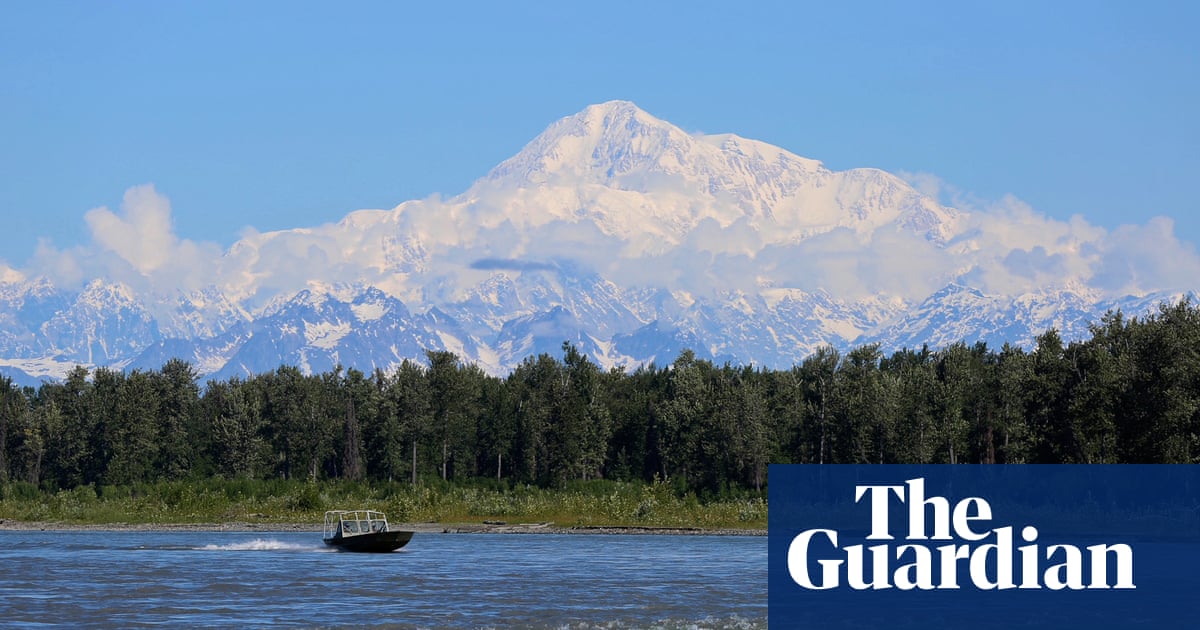
Donald Trump’s pledge to rename the highest mountain in North America has sparked backlash among some Indigenous Alaskans and Alaskan lawmakers, including Republicans.
Trump reiterated his intentions to rename Denali back to Mount McKinley during his inaugural address. Barack Obama had dubbed the mountain Denali during his presidency, undoing the 1917 designation made in honor of the 25th president, William McKinley.
The declaration of renaming has proved to be highly controversial. The Koyukon, an Alaska Indigenous Athabascan group, referred to the mountain as Denali for centuries before McKinley took office or Alaska became a US state.
The name was officially changed to Denali in 2015 to “recognize the sacred status of Denali to many Alaska Natives” though it is known by other names in other Indigenous Alaskan languages.
Alaska News Source reported research that suggested that Alaskans are against changing the name back to McKinley by about a two-to-one margin, despite Alaska being a state that is overwhelmingly supportive of Republicans.
Emily Edenshaw, president and CEO of the Alaska Native Heritage Center, told EarthBeat: “Keeping this name honors that connection and recognizes the enduring contributions of Alaska Native peoples.”
Alaskan lawmakers across the political spectrum have reacted negatively to Trump’s announcement.
In a video post on X, Dan Sullivan, an Alaska Republican senator, said: “I prefer the name Denali that was given to that great mountain by the great patriotic Koyukon Athabascan people thousands of years ago.”
Lisa Murkowski, another Republican senator from Alaska, said that she “strongly disagreed” with Trump’s decision to rename the mountain.
“Our nation’s tallest mountain, which has been called Denali for thousands of years, must continue to be known by the rightful name bestowed by Alaska’s Koyukon Athabascans, who have stewarded the land since time immemorial,” she wrote in a post on X.
But not every reaction to Trump’s announcement has been negative. Massee McKinley, great-great nephew of McKinley and a member of the Society of Presidential Descendants, told NBC News that his ancestor “deserves to have the mountain named after him”.
The choice to honor McKinley through the renaming of Denali is especially divisive due to the former president having racist views on native populations.
“We could not leave them [the Native people] to themselves – they were unfit for self-government,” McKinley once said in an interview about the Philippines and its people. “There was nothing left for us to do but to take them … uplift and civilize and Christianize them and by God’s grace do the very best we could by them.”
Alaska
Lawmakers press Alaska elections director on 2024 process, issues
ANCHORAGE, Alaska (KTUU) – Facing state Senate and House lawmakers questions Thursday over how the 2024 General Election was handled, Alaska’s Division of Elections Director Carol Beecher said her department is working on solutions to prevent similar situations in the future, including an influx of voters ahead of Election Day.
“The division was not prepared for early voting, and the early voting process takes longer than someone going to the polls,” Beecher explained. “Our space was certainly not adequate to deal with the volumes of people, and we didn’t have the volume of staff.
“I don’t know if it was a phenomenon of if it will happen again with the desire to vote early,” Beecher continued, “but we have certainly added that to our agenda, to discuss what can we do differently.”
After members of the House and Senate State Affairs Committees also expressed concern about what’s been reported as 106% of Alaska’s population being considered registered voters, Beecher responded calling comparing Alaska’s population percentage to registered voters “apples and oranges,” because she said people who do not reside in Alaska are also registered to vote here.
”Both can be true,” she said, saying that intent to return to Alaska is key, and citing overseas voters, such as members of the military.
Newly-minted Sen. Robert Yundt, R-Wasilla, asked Beecher about what’s known as “inactive” voters.
“There was 19,000 and some that were removed for being inactive,” he said of voters’ ballots this past election. “Can you speak to what determines, and makes for, someone being inactive, please?”
Beecher responded, in part, by saying there are many different ways the her staff would view a voter as “active,” including voting or signing a petition.
“Any kind of action contacting the Division (of Elections) makes you ‘active,’” she explained. “If we have no activity from an individual for two general elections, they are sent a notice.”
House State Affairs Committee Vice-Chair Rep. Andi Story, D-Juneau, asked about what happens when certain mistakes are made early in the voting process, for example, if a voter is struggling to understand or access their ballot.
“I had a constituent who had a visual impairment and came to vote,” Story said, “and at that time, the adaptation that this person needed wasn’t available. What happens when we have, some, I don’t know, mistakes like that?”
When somebody requests a special needs ballot, Beecher said, that is provided. Special needs ballots can also be requested on the DOE website.
Several lawmakers submitted bills as part of prefiled legislation ahead of the start of the session.
Sen. Mike Cronk, R-Tok, has a bill focused on civil liabilities when it comes to electioneering, while Story filed legislation centered on pre-registration for certain minor-aged voters.
For his part, Gov. Mike Dunleavy, R-Alaska, has also submitted bills for consideration, including House Bill 63, which his office said in a prepared statement would make the system as a whole “more efficient and trustworthy.”
HB 63 would, as written, repeal the 2016 ballot measure allowing voter registration through Permanent Fund Dividend applications; authorize voting by mail, specifically for communities that have fewer than 750 people; and allow the DOE to count absentee ballots earlier.
The bill was introduced this week and is currently with the House State Affairs Committee.
Dunleavy is expected in Juneau as early as Friday, ahead of next week’s annual State of the State Address.
See a spelling or grammatical error? Report it to web@ktuu.com
Copyright 2025 KTUU. All rights reserved.
-
/cdn.vox-cdn.com/uploads/chorus_asset/file/25832751/2192581677.jpg)
/cdn.vox-cdn.com/uploads/chorus_asset/file/25832751/2192581677.jpg) Technology1 week ago
Technology1 week agoSuper Bowl LIX will stream for free on Tubi
-
/cdn.vox-cdn.com/uploads/chorus_asset/file/25835602/Switch_DonkeyKongCountryReturnsHD_scrn_19.png)
/cdn.vox-cdn.com/uploads/chorus_asset/file/25835602/Switch_DonkeyKongCountryReturnsHD_scrn_19.png) Technology1 week ago
Technology1 week agoNintendo omits original Donkey Kong Country Returns team from the remaster’s credits
-

 Culture7 days ago
Culture7 days agoAmerican men can’t win Olympic cross-country skiing medals — or can they?
-

 Culture5 days ago
Culture5 days agoBook Review: ‘Somewhere Toward Freedom,’ by Bennett Parten
-

 Education1 week ago
Education1 week agoWhat Happened to Enrollment at Top Colleges After Affirmative Action Ended
-

 Politics1 week ago
Politics1 week agoU.S. Reveals Once-Secret Support for Ukraine’s Drone Industry
-

 Politics1 week ago
Politics1 week agoJohnson Installs Crawford on Intelligence Panel, Pulling It Closer to Trump
-

 World1 week ago
World1 week agoChrystia Freeland, Justin Trudeau’s ‘Minister of Everything,’ Enters Race to Replace Him
